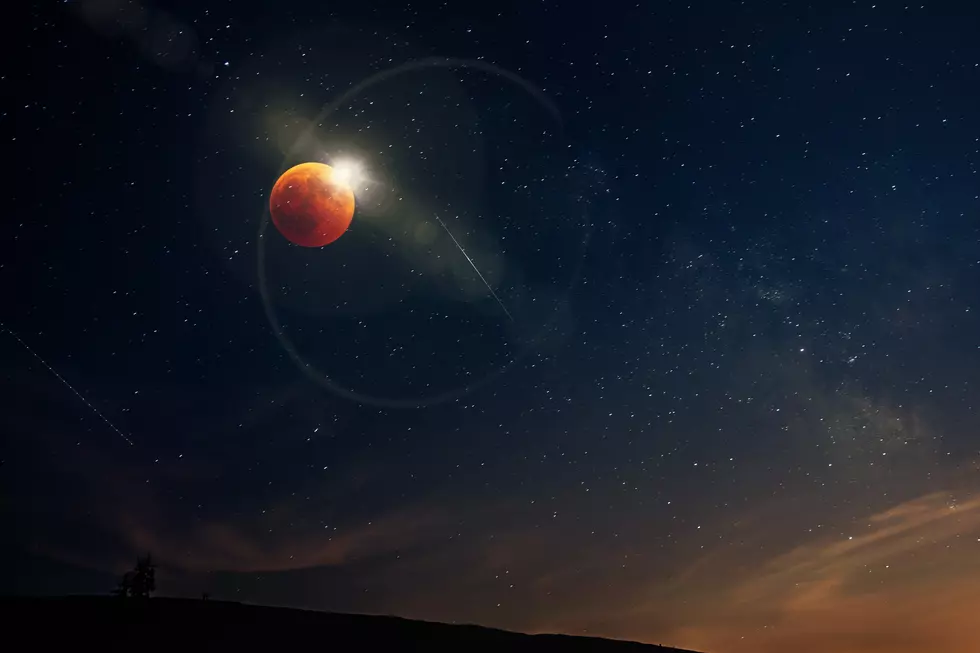
First of Two Total Eclipses of the Moon Over Michigan This Year Coming May15th
We must be living right. What? Well, we are getting not one but two total eclipses of the moon this year. The first starts late on May 15th, and then there's a second one in November 8th. The conventional thinking is that the one in May might be the best to view as you would think the weather will be better, but it's still a roll of the dice, because it could all be wiped out by rainy or stormy weather.
Here's what's happening
This is how this will all unfold on May 15th: A partial lunar eclipse will begin at 10:28 pm. The maximum total eclipse (when the moon turns red) starts just after midnight at 12:11 am. The partial eclipse then ends 90 minutes later at 1:55 am, (Monday, May 16th).
Interestingly there are four lunar eclipses in 2022, with two partial ones, including one this weekend (Saturday, April 30th). Then the pattern repeats with a partial lunar eclipse on October 25th followed by another total lunar eclipse on November 8th over most of North America.
The eclipse in May is referred to as a "blood moon" because, according to TimeAndDate.com "A total lunar eclipse is sometimes called a Blood Moon, because of the reddish tinge the Full Moon takes on when fully eclipsed. The term is also frequently used to describe four total lunar eclipses that occur in a row." The website says the term "Blood Moon" is not a scientific term. Good to know.
But here's an explanation in lay person's terms:
A total lunar eclipse happens when the Moon travels through the Earth's umbra and blocks all direct sunlight from illuminating the Moon's surface. However, some sunlight still reaches the lunar surface indirectly, via the Earth's atmosphere, bathing the Moon in a reddish, yellow, or orange glow. - TimeandDate.com


